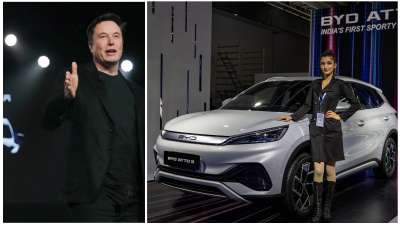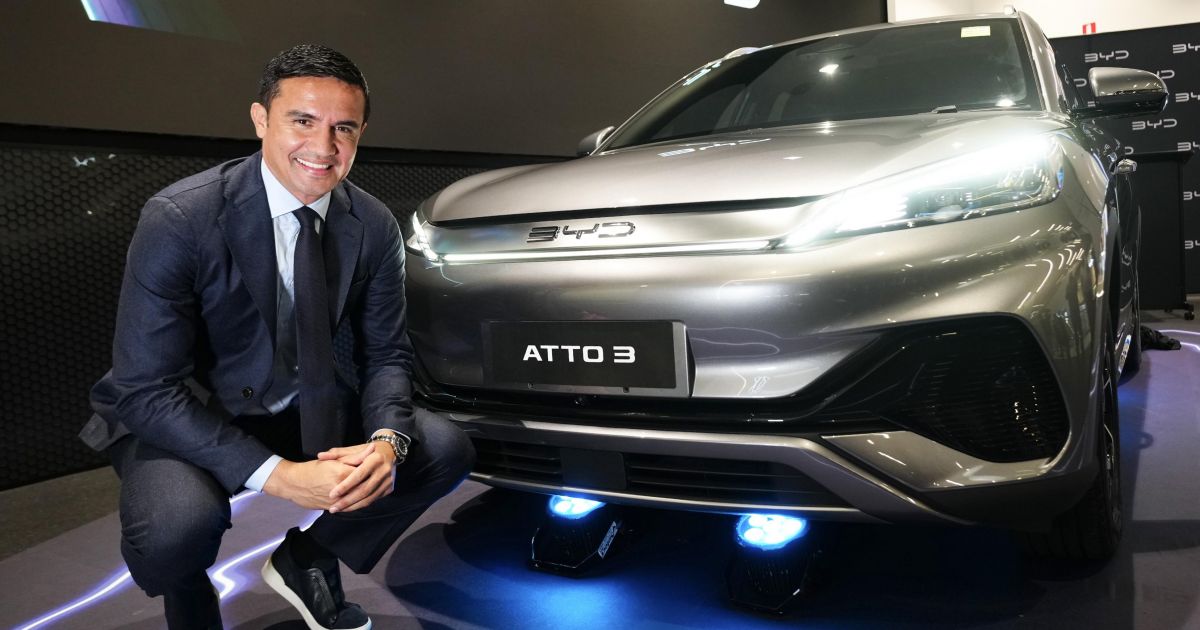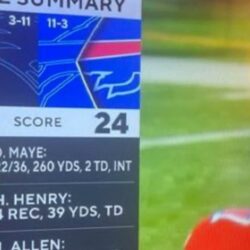BYD has beaten Tesla in one of Elon Musk’s halo project — of making hyper EV that would take on the best of the best from Lamborghini, Ferrari and other legacy hypercar makers. The new BYD Yangwang U9 costs $233,450, does 0-100 kmph in 2.36 seconds and has a top speed of 309.19 kmph
)
BYD has beaten Tesla in one of Elon Musk’s halo project — of making hyper EV that would take on the best of the best from Lamborghini, Ferrari and other legacy hypercar makers. The new BYD Yangwang U9 costs $233,450, does 0-100 kmph in 2.36 seconds and has a top speed of 309.19 kmph
Elon Musk himself has said that if there is one EV company in the world which he considers to be Tesla’s competition, the only EV company that can take on Tesla and cause it some serious damage, would be China’s BYD.
Although there have been times when the billionaire CEO of Tesla has disparaged the quality of the cars that BYD makes, he has, very recently, stated that even with all the trade sanctions and tariffs, Chinese car makers like BYD will crush the market.
And he may have a point. BYD recently took over Tesla as the highest-selling EV maker in the world. Moreover, it seems that BYD may have beaten Tesla in a field that was very close to Musk’s heart — that of launching a hyper EV, capable of taking on some of the most famed legacy automakers from Italy.

Although Tesla started with the Roadster as its first car in 2008, it was practically a repurposed Lotus Elise. Elon Musk has promised a new Roadster that would be developed by Tesla completely from the ground up. However, the halo project has already seen multiple delays and isn’t likely to be launched any time soon.
BYD, backed by Warren Buffett’s Berkshire Hathaway, which normally makes cost-effective, simplistic EVs, has entered the luxury segment with the launch of the Yangwang U9, a high-performance electric sports car positioned to rival prestigious brands like Ferrari and Lamborghini.
Priced at 1.68 million yuan ($233,450), the Yangwang U9 boasts impressive specifications, including a 0-100 kmph acceleration time of 2.36 seconds and a top speed of 309.19 kmph.
Additionally, the car features innovative capabilities such as spinning in place and dance mode, as showcased in videos circulating on social media.
This achievement has sent ripples of concern through established automakers like Ford and Stellantis who have been trying to get a piece of the EV pie from Tesla, prompting them to reassess their pricing strategies to remain competitive.

While initially available exclusively in China, traders have exploited loopholes to sell luxury Chinese EVs to overseas markets, where they are perceived as status symbols.
In contrast to its foray into luxury vehicles, BYD continues to cater to budget-conscious consumers with the introduction of a lower-priced version of its popular Dolphin hatchback. The new model, priced at $13,865, aims to capitalize on the success of its predecessor, which saw a significant increase in sales in 2023.
However, despite its diverse product lineup, BYD faces numerous challenges, including fierce price competition, market saturation, and slower EV growth in China. Expanding internationally presents additional hurdles such as trade barriers and regulatory complexities, though BYD is exploring manufacturing opportunities in various countries, including Hungary, Thailand, and potentially Mexico.
Despite scepticism in the past, Elon Musk acknowledged BYD’s competitiveness in the EV market, recognizing Chinese automakers’ potential to disrupt the industry on a global scale.
Berkshire Hathaway’s investment in BYD, spearheaded by Charlie Munger, has proven immensely profitable, underscoring the leadership and innovative prowess of BYD’s founder and CEO, Wang Chuanfu.





